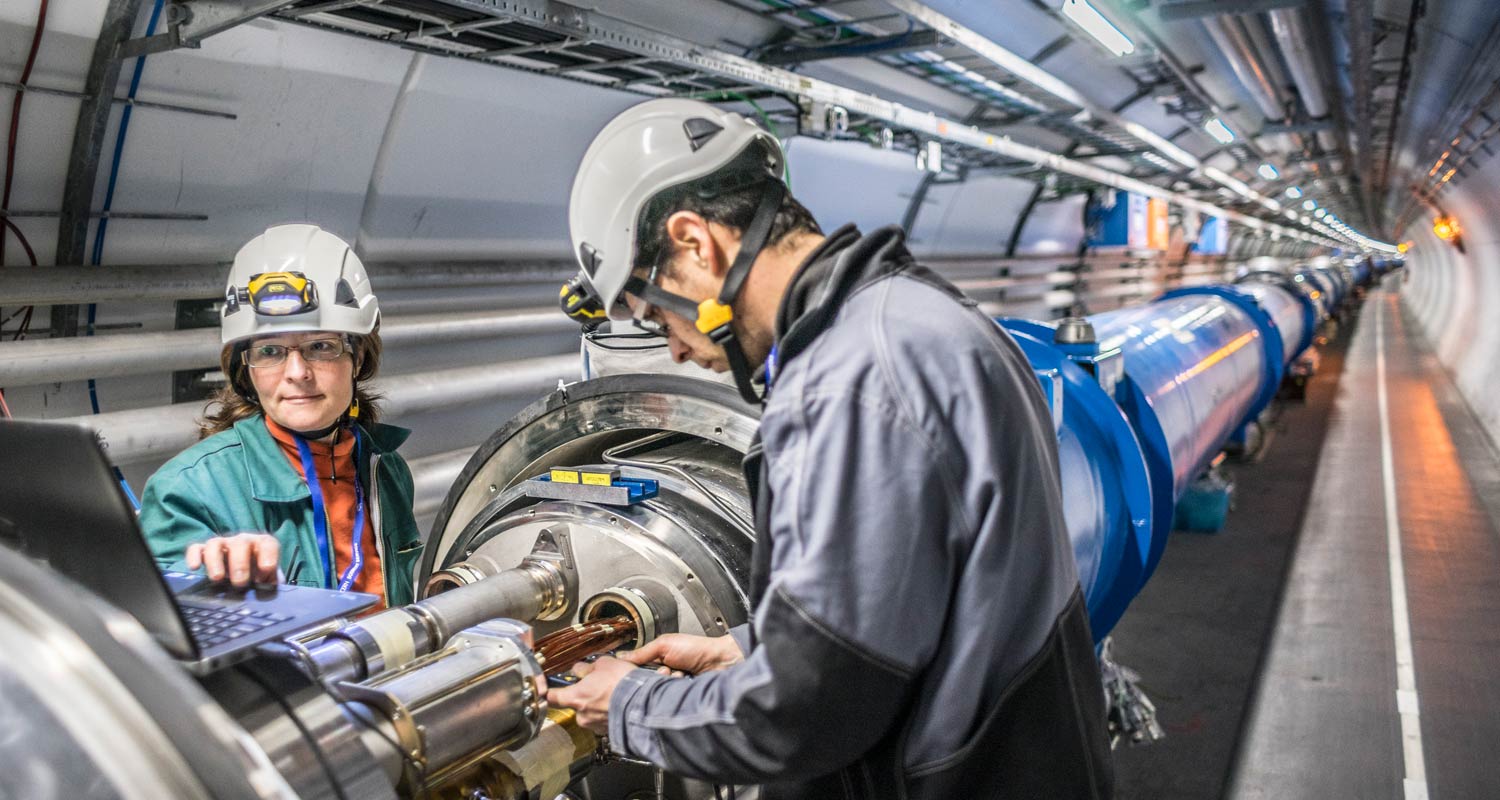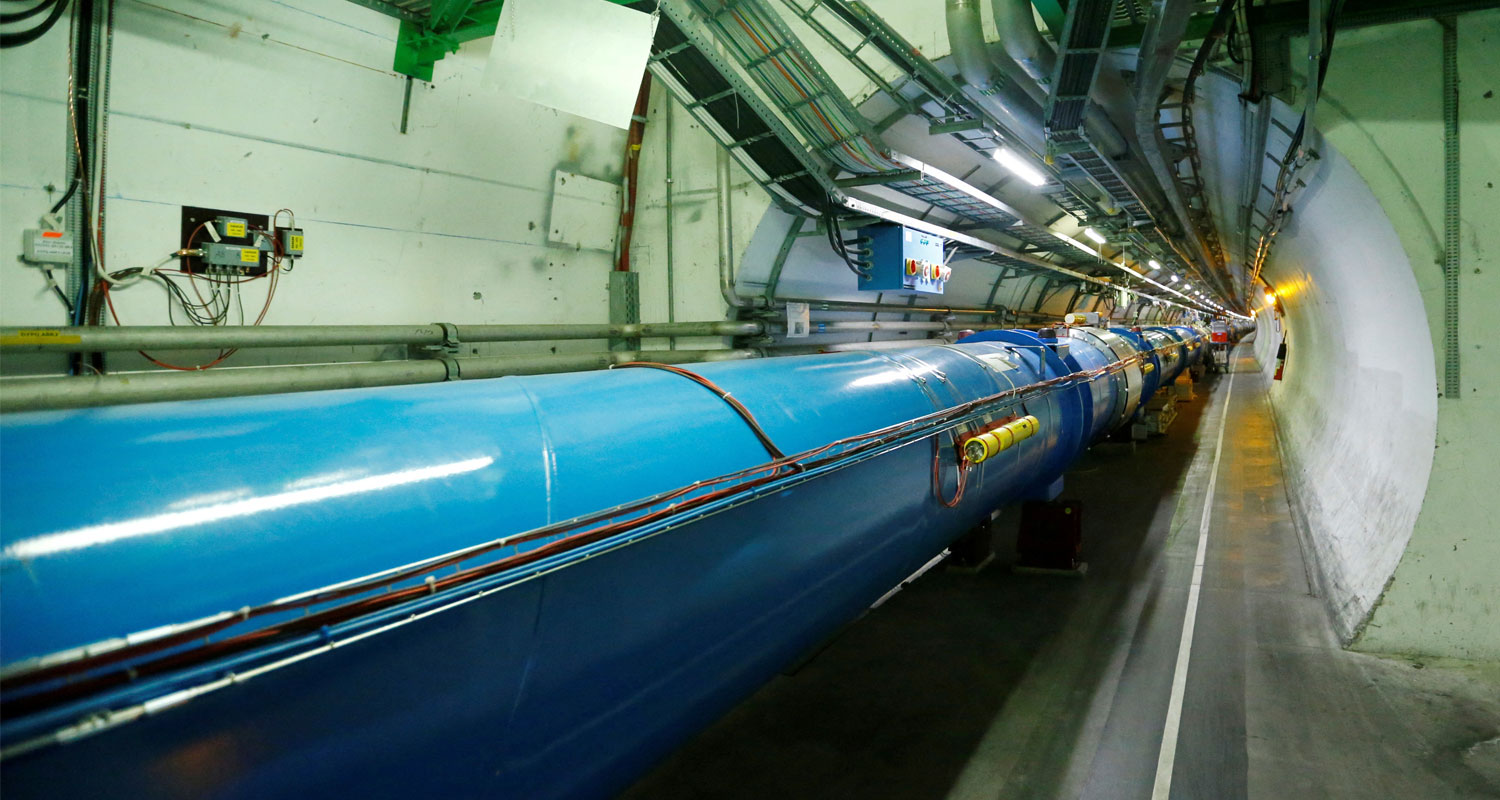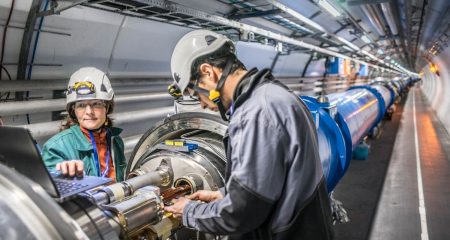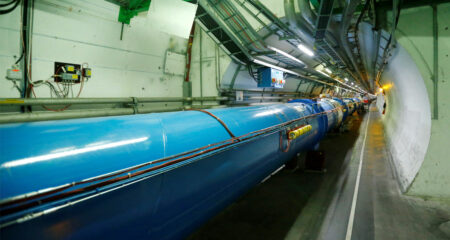
Cern, the particle physics lab researching the smallest building blocks of the universe, is facing a new challenge: how to fund a US$17-billion project to keep it ahead of the competition.
The world’s top nuclear physics hub needs to finance the construction of the Future Circular Collider as its existing particle accelerator — famed for discovering the Higgs Boson — edges toward the end of its useful life. But as Cern welcomes European Commission chief Ursula von der Leyen and other leaders to its 70th birthday celebrations on Tuesday, its chief must rally cash-strapped European member states to foot the bill.
Cern director-general Fabiola Gianotti is also looking at new ways to fund research that spans the invisible dark matter that makes up most of the universe to the possible effects of cosmic rays on clouds. While Cern’s pioneering work has yielded inventions like the world wide web, such breakthroughs come indirectly from its pure research.
“Fundamental research is a driver of innovation,” Gianotti said in an interview at European Organisation for Nuclear Research, or Cern, which straddles the border between France and Switzerland, just outside Geneva. “History shows that major breakthroughs come from fundamental research.”
The geopolitical stakes are high, as the West seeks to maintain its lead over China in particle physics. Gianotti, who’s nearing the end of her second term as director-general, acknowledges that China could build a rival collider but says Cern retains certain advantages.
“China has ambition and for sure the capability,” she said. “But Cern is a unique institution and I’m not so sure it’s easy to clone in terms of values, in terms of openness, in terms of collaboration, in terms of science, technology, everything together.”
In his long-awaited report on EU competitiveness earlier this month, former European Central Bank president Mario Draghi highlighted Cern as a success story. The lab had wrested global leadership in particle physics from the US, and the next collider would have a key role in advancing cutting-edge technologies.
Cern’s future
“If China were to win this race and its circular collider were to start working before Cern’s, Europe would risk losing its leadership in particle physics, potentially jeopardising Cern’s future,” according to Draghi’s report.
A feasibility study on the new accelerator will end in 2025, with a decision on whether to approve it expected in 2027 or 2028. The new collider would run for about 90km beneath the fields of France and Switzerland, including the western end of Lake Geneva, dwarfing the existing 27km underground ring.
TCS | Bruce Mellado on the tech-led fight against air pollution in South Africa
Gianotti, who leads a 4 500 strong team of physicists, engineers and technicians, has mustered support for the new collider from the US — an observer partner — and some European member states.
However, Cern is also opening the door to a discussion about private-sector financing of its core scientific programme, according to Gianotti, who arrived as a post-doctoral researcher from Italy in 1994 and steps down at the end of 2025.

Last year, Cern accepted $48-million from the Eric & Wendy Schmidt Fund for Strategic Innovation to develop AI algorithms to analyse raw data from the LHC, the first such donation for its core scientific work. More debate is required before that becomes the norm.
“It’s a very complex topic,” said Gianotti, an experimental particle physicist by training. “We are open to it, but we are not yet there.” — Hugo Miller, (c) 2024 Bloomberg LP




